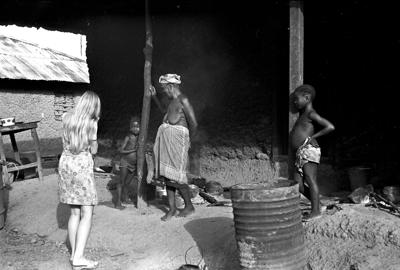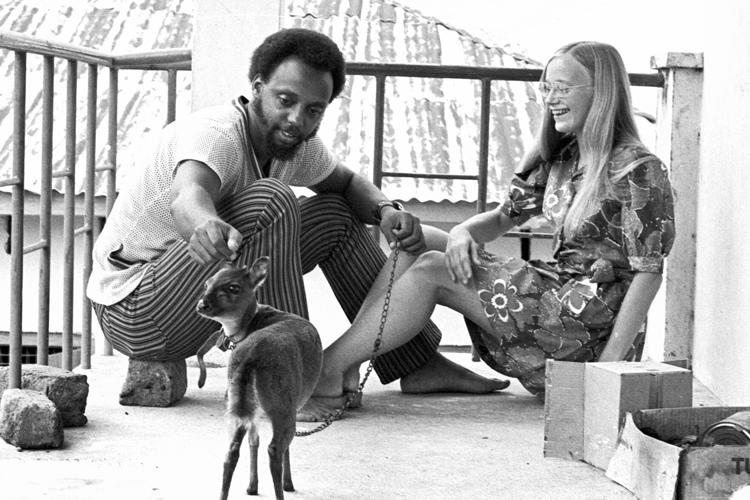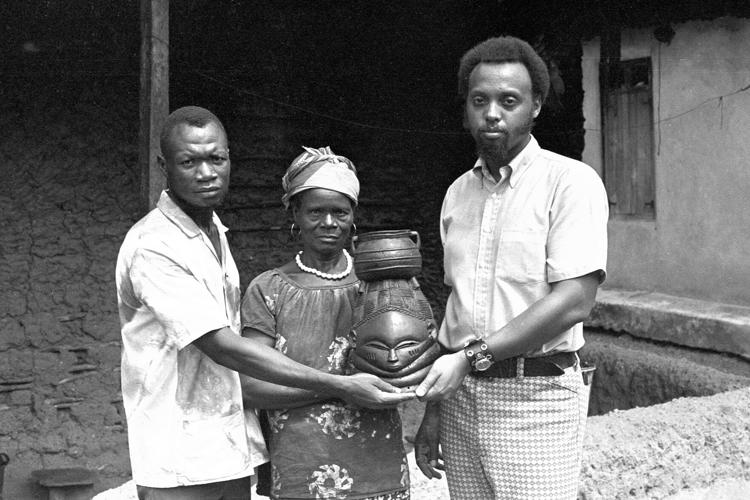The Joyner Library at East Carolina University is displaying traditional to modern African art in the Wellington B. Gray Gallery presented by Celeste and Reginald Hodges from Aug. 15 to Sept. 30.
Former Peace Corps volunteers Celeste and Reginald Hodges said they worked in West Africa for 20 years on an assignment and during that time they collected hundreds of traditional African artworks and textiles along with photographs taken by Celeste herself.
Reginald Hodges said they heard the galleries at East Carolina University were “up and coming” and they wanted to reach out and get to know more about the university to potentially display their pieces in the exhibits.
“I was very impressed with what they’re (ECU) doing and trying to do,” Hodges said. “It's exposing the student body to art culture. I had probably 400 or 500 pieces that they were open to select from and go through.”
Hodges said they have donated to a lot of universities and museums, including all of the major universities in the Raleigh-Cary-Durham triangle area. He said they are not a professional organization and all of their pieces take up the attic space connected to their home.
Hodges said ECU wanted household items such as baskets and textiles. ECU wanted to show the evolution of art in Africa and how it went from the traditional to the modern art, so they didn’t choose jewelry or decorative pieces, Hodges said.
“We’re trying to make sure our art has a good home and serves the purposes that we want it to be used for,” Hodges said. “We’re two people in our 70s. We want to make sure the universities have the capacity to do good things with our art and educate people, and that’s what ECU did.”
The Hodges were impressed with the displays of some of their pieces when they came to visit on Friday, Aug. 11th, Hodges said. The university has approximately 150 pieces that they plan to show throughout the month of August into the end of September.
Hodges said the majority of their pieces come from West Africa, including Ghana, Liberia, Sierra Leone and some pieces from Morocco as well. The Hodges have also included some African photography pieces in the items they have given the university.
“You can see the contrast between the things that people made originally compared to what they made now,” Hodges said. “A lot of what they made now is for sale and not for use like the traditional pieces originally were.”
Africans did not make art for public consumption until the early 1900s, Hodges said. Prior to this, the art was used for functional purposes and now they are made to look beautiful while still maintaining some of the cultural aspects of the tribe.
Celeste Hodges is focused on textiles and photography while Reginald Hodges is focused on the large pieces and artworks. Reginald majored in art at North Carolina Central University with a focus on African art classes.
“I learned a lot about what I know about art from our experiences there and the interest in art only grew after being in Africa,” Hodges said. “There was an interest and desire to learn about African art and share it with the world.”
Crystal Baity, News Services reporter for ECU, wrote in an email statement that Celeste and Reginald applied to the Peace Corps after hearing John F. Kennedy’s speech on the creation of it. The Hodges met in the late 1960s while on assignment in Sierra Leone and built a life in West Africa, Baity wrote.
“Curator Maria Modlin and Jate Bokoski, director of the School of Art and Design, have worked with the couple for more than a year on the donation and transfer of items in preparation for the exhibition,” Baity wrote.









(0) comments
Welcome to the discussion.
Log In
Keep it Clean. Please avoid obscene, vulgar, lewd, racist or sexually-oriented language.
PLEASE TURN OFF YOUR CAPS LOCK.
Don't Threaten. Threats of harming another person will not be tolerated.
Be Truthful. Don't knowingly lie about anyone or anything.
Be Nice. No racism, sexism or any sort of -ism that is degrading to another person.
Be Proactive. Use the 'Report' link on each comment to let us know of abusive posts.
Share with Us. We'd love to hear eyewitness accounts, the history behind an article.